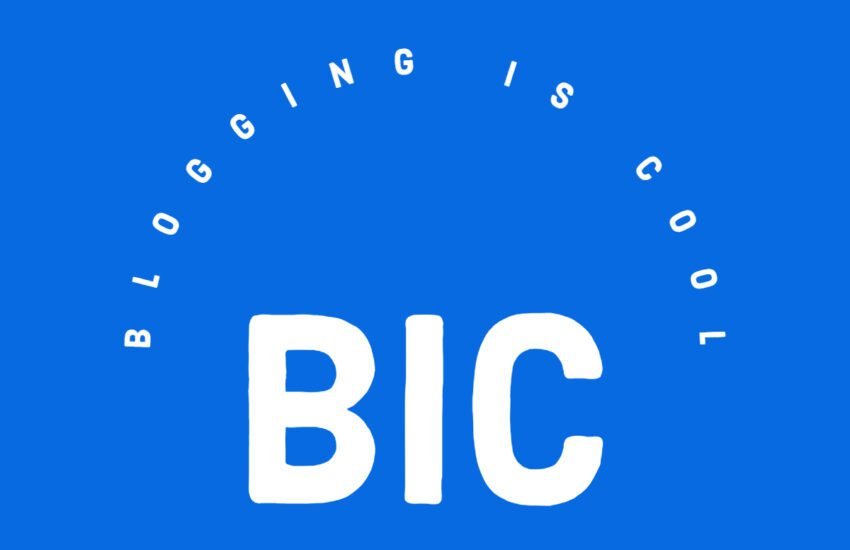The Importance of Domain Authority and Page Authority in SEO
Domain authority and page authority are key indicators of how well your website is likely to rank on search engine results pages (SERPs). Domain authority measures the overall strength and credibility of your entire website, while page authority focuses on the strength and credibility of individual pages within your site.
Domain authority is determined by a variety of factors, including the number and quality of backlinks pointing to your site, the relevance and quality of your content, and the overall user experience your website provides. A higher domain authority indicates that your website is seen as trustworthy and authoritative by search engines, which can lead to higher rankings and increased organic traffic.
Page authority, on the other hand, is specific to each individual page on your site. It takes into account similar factors as domain authority, but focuses on the strength of a particular page in relation to its specific topic or keyword. A high page authority indicates that a specific page is highly relevant and authoritative for a given keyword, making it more likely to rank well in search results for that keyword.
Both domain authority and page authority are important because they influence how search engines perceive and rank your website. A higher domain authority can help your entire site rank higher in search results, while a high page authority can help specific pages rank well for their targeted keywords.
Improving domain authority and page authority requires a combination of technical optimization, quality content creation, and strategic link building. By focusing on these areas, you can increase your website’s credibility and visibility in search engine results, ultimately driving more organic traffic and potential customers to your site.
It’s worth noting that domain authority and page authority are not the only metrics to consider when it comes to SEO. Other important metrics include keyword rankings, organic traffic, bounce rate, and conversion rate. However, domain authority and page authority serve as foundational metrics that can help guide your overall SEO strategy and provide insights into the overall health and performance of your website.
Another important factor that contributes to domain authority is the relevance of the content on your website. Search engines value websites that provide high-quality and relevant content to users. If your website consistently produces valuable and informative content that aligns with the interests and needs of your target audience, it is more likely to have a higher domain authority.
Furthermore, the overall user experience of your website can also impact your domain authority. Search engines prioritize websites that are user-friendly, fast, and easy to navigate. If your website has a clean and intuitive design, loads quickly, and provides a seamless browsing experience, it can positively influence your domain authority.
In addition to these factors, social signals also play a role in determining domain authority. Social signals refer to the engagement and activity your website receives on social media platforms. When users share, like, and comment on your content on social media, it indicates to search engines that your website is popular and relevant. This can contribute to a higher domain authority.
It is important to note that domain authority is not a static metric and can change over time. It is influenced by both internal and external factors. Internal factors include the quality of your website’s content, its structure, and the overall optimization of your website for search engines. External factors, on the other hand, include the number and quality of backlinks your website receives from other websites.
In conclusion, domain authority is a crucial metric that impacts the visibility and ranking of your website in search engine results. By focusing on creating high-quality content, building reputable backlinks, providing a positive user experience, and actively engaging on social media, you can improve your domain authority and enhance your website’s online presence.
Exploring Page Authority
Page authority, on the other hand, is a metric that focuses on the authority of individual pages on your website. It is also measured on a scale of 1 to 100 and is influenced by similar factors as domain authority, such as backlinks and the quality of content on the page.
Page authority is particularly important for websites that have multiple pages targeting different keywords or topics. Each page on your website has the potential to rank independently in search engine results, and having high page authority can increase the chances of your pages appearing prominently in SERPs.
When it comes to optimizing your website for search engines, understanding page authority is crucial. By improving the page authority of your individual pages, you can enhance their visibility and attract more organic traffic. One way to enhance page authority is by building high-quality backlinks to your pages. Backlinks act as endorsements from other websites, indicating to search engines that your content is valuable and trustworthy.
In addition to backlinks, the quality of content on your pages plays a significant role in determining their authority. Pages that provide valuable and relevant information to users are more likely to earn higher page authority. This means that you should focus on creating well-researched, engaging, and informative content that addresses the needs and interests of your target audience.
Another factor that influences page authority is the internal linking structure of your website. By strategically linking your pages together, you can pass authority from high-authority pages to those with lower authority. This can help boost the overall authority of your website and improve the rankings of individual pages.
Furthermore, optimizing on-page elements such as meta tags, headings, and keyword usage can also contribute to improving page authority. By including relevant keywords in your content and meta tags, you can signal to search engines what your page is about and increase its chances of ranking for those keywords.
In conclusion, page authority is a vital aspect of search engine optimization. By focusing on improving the authority of your individual pages through factors such as backlinks, content quality, internal linking, and on-page optimization, you can enhance their visibility and increase their chances of ranking prominently in search engine results.
5. Enhanced User Experience
Domain authority and page authority are not just about search engine rankings; they also reflect the overall user experience on your website. Websites with high authority tend to have well-structured content, easy navigation, and fast loading times, all of which contribute to a positive user experience. When users have a seamless and enjoyable experience on your site, they are more likely to stay longer, explore more pages, and potentially convert into customers.
6. Long-Term Growth and Sustainability
Building and maintaining a high domain authority and page authority is an investment in the long-term growth and sustainability of your website. While it may take time and effort to improve these metrics, the benefits can be long-lasting. As your authority increases, you establish a strong foundation that can withstand algorithm updates and changes in the digital landscape. This means that even if your competitors try to outrank you, your high authority will help you maintain your position in search engine results.
7. Brand Recognition and Awareness
When your website consistently ranks high in search engine results, it increases brand recognition and awareness. Users are more likely to trust and remember websites that appear at the top of the search results, leading to increased brand visibility and recall. This can help drive repeat visits, referrals, and even word-of-mouth marketing.
8. Authority in Your Industry
Having a high domain authority and page authority positions you as an authority in your industry. When your website consistently provides valuable and relevant content, users and other industry professionals recognize your expertise. This can lead to opportunities for partnerships, collaborations, and speaking engagements, further establishing your credibility and influence.
In conclusion, domain authority and page authority are essential metrics that play a crucial role in the visibility, credibility, and success of your website. By focusing on improving these metrics, you can gain a competitive advantage, attract targeted traffic, enhance the user experience, and position yourself as an authority in your industry. Investing in your domain authority and page authority is a long-term strategy that can yield significant benefits for your website and overall online presence.
Improving Domain Authority and Page Authority
Now that you understand the importance of domain authority and page authority, you may be wondering how to improve these metrics for your website. Here are a few strategies to consider:
1. Quality Backlinks
Building high-quality backlinks is crucial for improving both domain authority and page authority. Focus on acquiring backlinks from reputable and relevant websites in your industry. This can be done through guest blogging, content partnerships, and outreach to influencers or industry experts.
Additionally, it’s important to diversify your backlink profile by acquiring links from a variety of sources. This includes obtaining links from different domains, using a mix of anchor texts, and obtaining links from both high domain authority and low domain authority websites. By doing so, search engines will view your website as more authoritative and trustworthy, leading to an increase in both domain authority and page authority.
2. Content Optimization
Creating high-quality, informative, and engaging content is essential for improving page authority. By optimizing your content for relevant keywords and providing valuable information to your audience, you can attract more organic traffic and increase the authority of your pages.
When optimizing your content, make sure to conduct keyword research to identify the most relevant and high-volume keywords in your industry. Incorporate these keywords naturally into your content, including in the title, headings, and throughout the body. Additionally, consider adding multimedia elements such as images, videos, and infographics to enhance the user experience and make your content more shareable.
3. Technical SEO
Ensuring that your website is technically sound and optimized for search engines is crucial for improving both domain authority and page authority. This includes optimizing page load speed, using proper heading tags, optimizing meta tags, and ensuring mobile-friendliness.
One important aspect of technical SEO is optimizing your website’s page load speed. Slow-loading pages can negatively impact user experience and lead to higher bounce rates, which can in turn affect your page authority. To improve page load speed, consider compressing images, minifying CSS and JavaScript files, and leveraging browser caching.
4. User Experience
Providing a positive user experience on your website can indirectly impact your domain authority and page authority. When users have a seamless and enjoyable experience on your website, they are more likely to stay longer, engage with your content, and share it with others, thereby increasing your authority.
To enhance user experience, focus on improving website navigation and usability. Ensure that your website is easy to navigate, with clear menus and intuitive user interface. Make sure that your content is well-organized and easy to read, with proper formatting and headings. Additionally, consider implementing interactive elements such as quizzes, surveys, or calculators to engage your audience and encourage them to spend more time on your website.
By implementing these strategies, you can improve both your domain authority and page authority, ultimately leading to increased visibility, higher rankings, and more organic traffic for your website.

